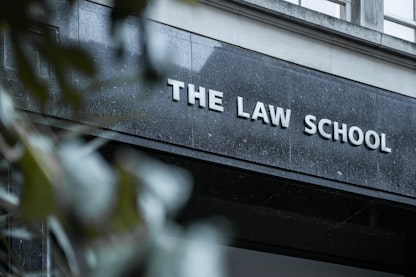How to land a pupillage

Read our top tips on how you can secure a pupillage after your BTC.
What is a pupillage?
Following successful completion of a Barrister Training Course (BTC) a pupillage is the final step towards becoming a qualified barrister. It usually lasts around 12 months and is split into two six-month periods known as ‘sixes’. During your pupillage you will be given practical training under the supervision of a barrister.
First six
The first six is known as the non-practising stage, where you will shadow a barrister for six months, or two barristers for two three-month periods. You’ll accompany barristers to court, consultations, and conferences, as well as assist barristers with their papers and administrative tasks.
Second six
The second six is the practising stage, where you’ll obtain a provisional practising certificate, enabling you to provide legal services to the public under the supervision of your supervisor(s). Depending on the chambers, you may also appear in court during this stage, and opportunities for advocacy at the criminal bar will increase. If you’re in a commercial set you will focus more on written opinions, pleadings, and other administrative work.
Securing a pupillage
Pupillages are highly competitive placements, so it’s super important that you do your research, revise, and practice your interview technique. Remember – it’s likely that there will be as many as 10 times more people applying than there are pupillages available in any given year, so you certainly shouldn’t consider not winning your first pupillage as a failure.
We’ve pulled together some top tips to help ensure you’re ready, along with some example questions that you may encounter during the interview process.
Mini pupillages
Mini pupillages are a brilliant way to decide which area of law you may which to practice in and which chambers suits you best. It also builds and enhances your experience which you can draw on in your interview.
Pro bono work
Along with mini pupillages, pro bono work is really useful for your CV and application. It will also help you enhance your skill set and better your understanding of real-world law. Our award-winning pro bono service is available to you throughout your studies at BPP – so make sure you utilise this.
Research the chambers
You’re guaranteed to be asked why you’re applying for a pupillage at that particular chambers. In order to ask this question properly, you need to have researched the types of law they practice, who works there, and if possible – the people who will be interviewing you. Read any news or articles about the champers to build your contextual knowledge. Don’t go for a generic answer – make sure you’ve really thought it out.
Know your application inside out
It’s crucial that you memorise your application in such a competitive environment – as those interviewing you will ask many questions that you need to be prepared to answer. This may begin with questions based on your skills and experiences. You could be asked about your degree, exam results, as well as any extra-curricular activities you’ve taken part in. Being able to answer these questions confidently will really help you get off to a great start.
Example questions:
Talk us through your relevant experience
What kind of extra-curricular activities did you take part in while at university?
What were your favourite modules at university and why?
Prove your enthusiasm
Why do you want a career in law? Interviews will expect to see how passionate you are about a career as a barrister, and you’ll be asked questions about different aspects of the bar to determine your level of understanding.
Make sure you stay up to date with recent developments in the sector. Discuss any relevant work experience, university assignments that stood out to you, and your motivations for wanting to become a barrister. What sparked your personal experience? Link this with your skills and attributes that directly match the requirements of the role.
Example questions:
What skills does a successful barrister have?
Why do you want a pupillage here?
How have you prepared for a career at the bar?
Prepare to be challenged
Go into the interview expecting your interviewers to challenge some of the points you’ve made in your application. Be prepared to stand your ground and defend your arguments. Remain calm and use well-balanced, reasoned arguments to avoid being caught out. Remember – don’t be afraid to take a pause and gather your thoughts before answering the question.
Get the basics right
It might sound obvious – but the ‘basics’ are key. Make sure you come across as polite, enthusiastic, and professional throughout the interview. Speak clearly with confidence, dress smartly, arrive early, and make sure you have a few questions to ask your interviewers at the end of the interview.
Don’t take it personally
We’ve said it before, but pupillages are extremely competitive. Most aspiring barristers are unsuccessful when applying for their first pupillage – so don’t let this deter you. Keep a positive mindset and keep applying – you’ll get there!
Find out more about our Barrister Training Course (BTC) here.

